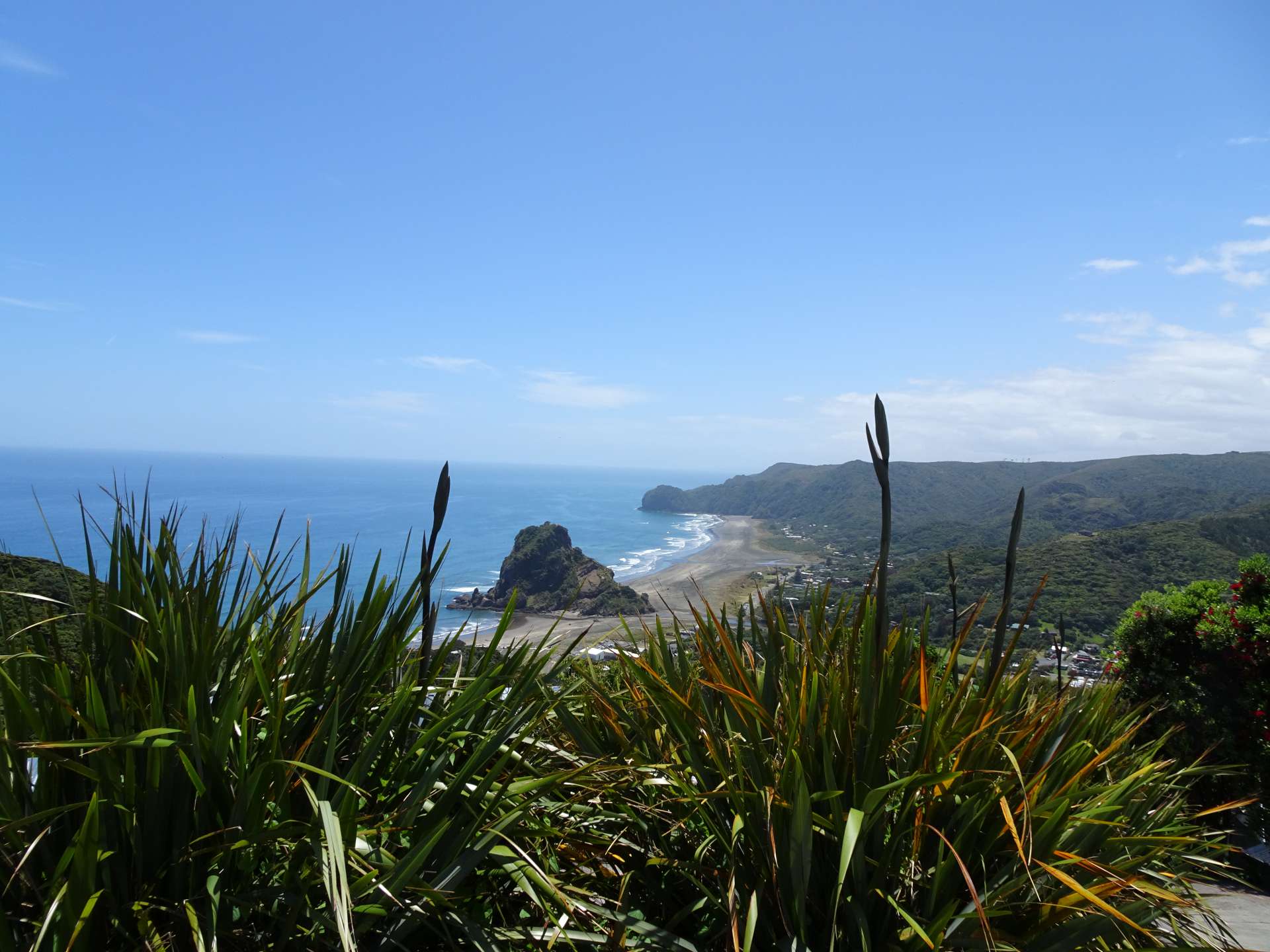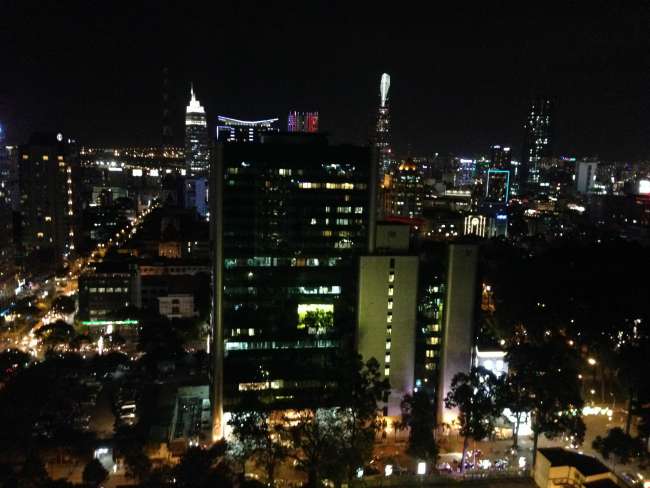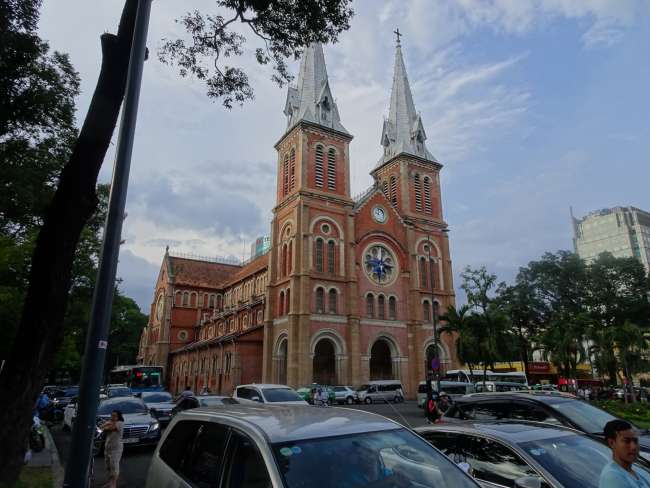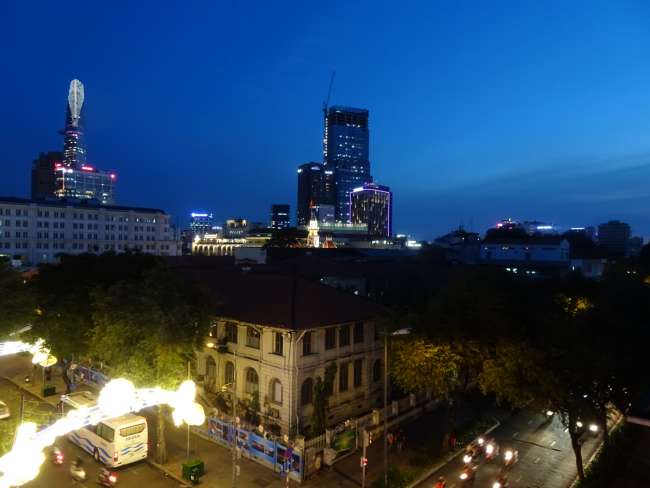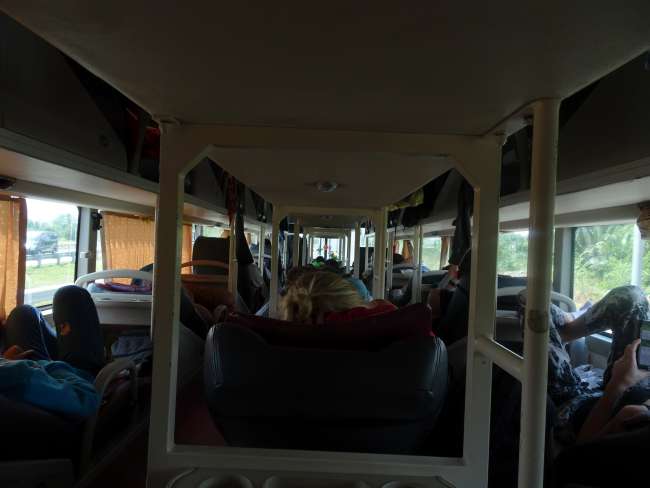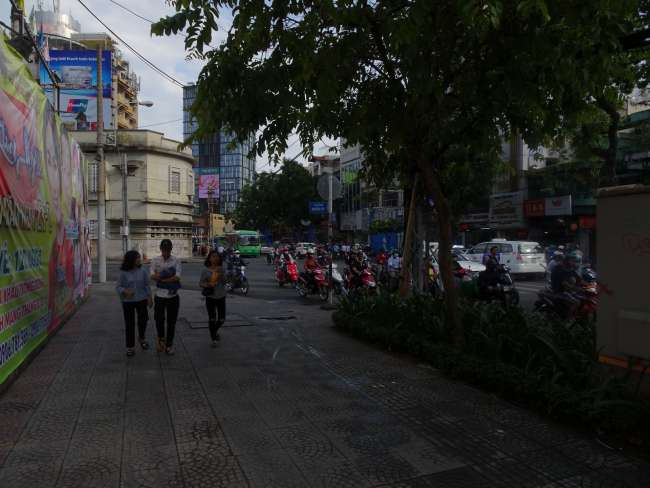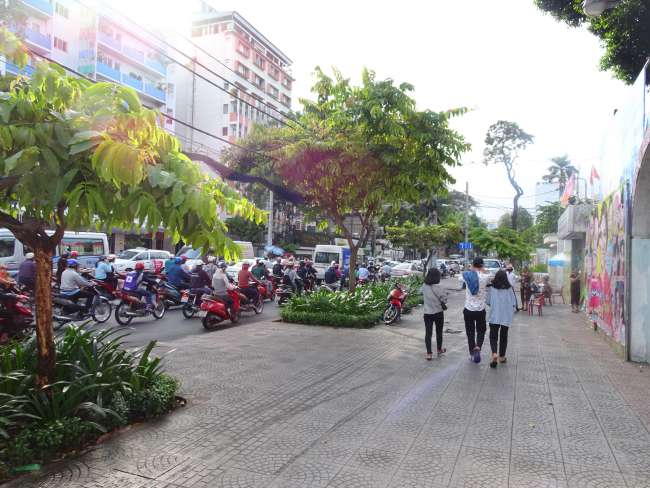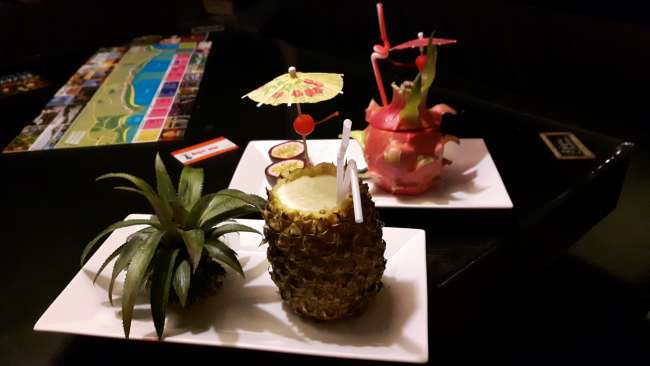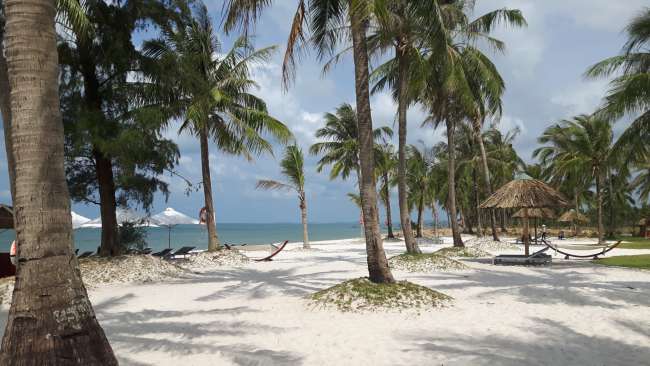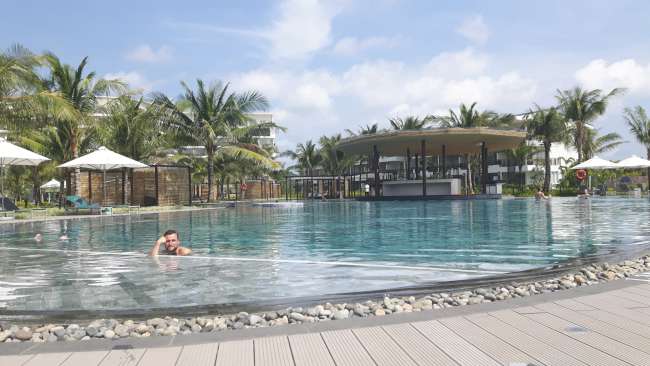
judithundwillaufentdeckungsreise
vakantio.de/judithundwillaufentdeckungsreise
Mui Ne, Saigon and Phu Quoc
ප්රකාශිතයි: 28.02.2017
පුවත් පත්රිකාවට දායක වන්න
Here follows a slightly shorter and delayed report, as the experiences of the last week were not quite as exciting due to more than half-day bus trips and three days of rest at the beach.
Our journey along the Vietnamese coast took us from Nha Trang, which is occupied by Russian tourists and restaurateurs, to Mui Ne, a small beach town that stretches across several bays and mainly lives off tourism. The bus trip there was surprisingly comfortable and problem-free, with air conditioning and reclining seats.
Apart from the realization that it is only clean where Western money has created large hotel complexes, Mui Ne actually only had a few nice beach sections, so we spent a lot of time planning our further travels. From Mui Ne, we were supposed to take the bus to Ho Chi Minh City the next day.
In fact, the bus picked us up after a waiting time of more than an hour in front of our accommodation and was again equipped with air conditioning, internet, and reclining seats. Upon arrival in Saigon, we explored the city on foot. The most obvious difference for us, apart from temperatures of over 30 degrees and stuffy air, was that the city felt much more like a Western metropolis. The streets and blocks of houses are generously laid out with a lot of one-way traffic and lined with high-rise towers. The city has fewer small, narrow alleys than Hanoi and overall has a rather modern appearance. The countless small junk shops and street food stalls that make up Hanoi's Old Quarter are only sparsely located here. We saw trash cans and a garbage collection for the first time in Vietnam, and fewer people burn their trash on the street.
Although we visited some places, Saigon does not have proper attractions except for the War Remnants Museum. Here, the horrors of the independence war against France and, above all, the war against the Americans are depicted in very impressive pictures and also some texts. The whole museum focuses on war crimes, both by the South Vietnamese towards their own "freedom fighters" from the North - impressively illustrated by a replica of a prison for political prisoners - and by the Americans with their collection of cruel weapons. An exhibition shows not only the victims of fragmentation bombs and landmines but also the horror of chemical weapons. It also documents and proves some of the US attacks or deliberate destruction of entire villages filled with civilians - horrifying. The museum strives for objectivity by primarily displaying pictures from US archives or by US photographers. It does not mention the fact that atrocities were also committed against the Vietnamese people by the Viet Cong. In comparison to US military museums that deal with the topic, the picture that this museum leaves behind is much more coherent.
In Ho Chi Minh City, we found some bars and cafes that have taken advantage of the industrial charm of the brick high-rises (usually around 6 stories) and integrated it into their culinary concept.
Just as everything here seems more Western, the prices for food and drinks in Saigon are higher than in the rest of Vietnam. However, our detour to Saigon was relatively short, as there is certainly more to discover here, but our nerves are somewhat strained from the noise, dirt, and hustle and bustle of the many big cities, and we wanted to take a break before heading into the hustle and bustle of Cambodian cities. So after only two nights, we moved on to the island of Phu Quoc. Here, there are mainly rich, dark green forests, a former and probably one of the most cruel military prisons, and a beach tourism that is currently booming with construction.
Here, we did nothing for three days except lie by the pool and beach (for free, once again) and explore the local cuisine of the nearby town a little bit with the scooter. The place itself was, as often, not very worth seeing, but the food was all the more delicious. Among other things, we visited a small but well-made restaurant run by a young Vietnamese woman that had only been open for a few weeks. Besides the classic street kitchens, which are mostly family-run, and the "professional" restaurants, there seems to be a considerable number of modern small restaurants run by young Vietnamese people in Vietnam, where we have always eaten well and cheaply.
After our relaxing days on the island, we set off towards Cambodia by ferry and minibus.
පුවත් පත්රිකාවට දායක වන්න
පිළිතුර
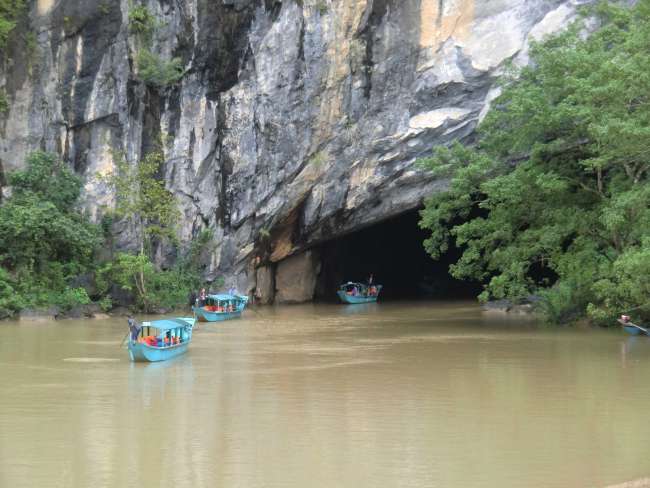
සංචාරක වාර්තා වියට්නාමය
